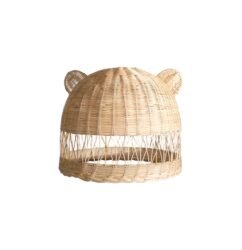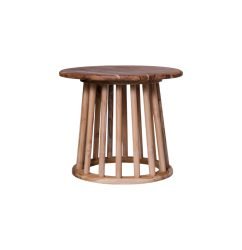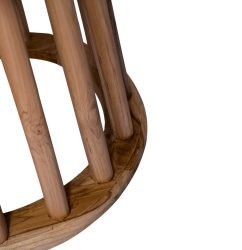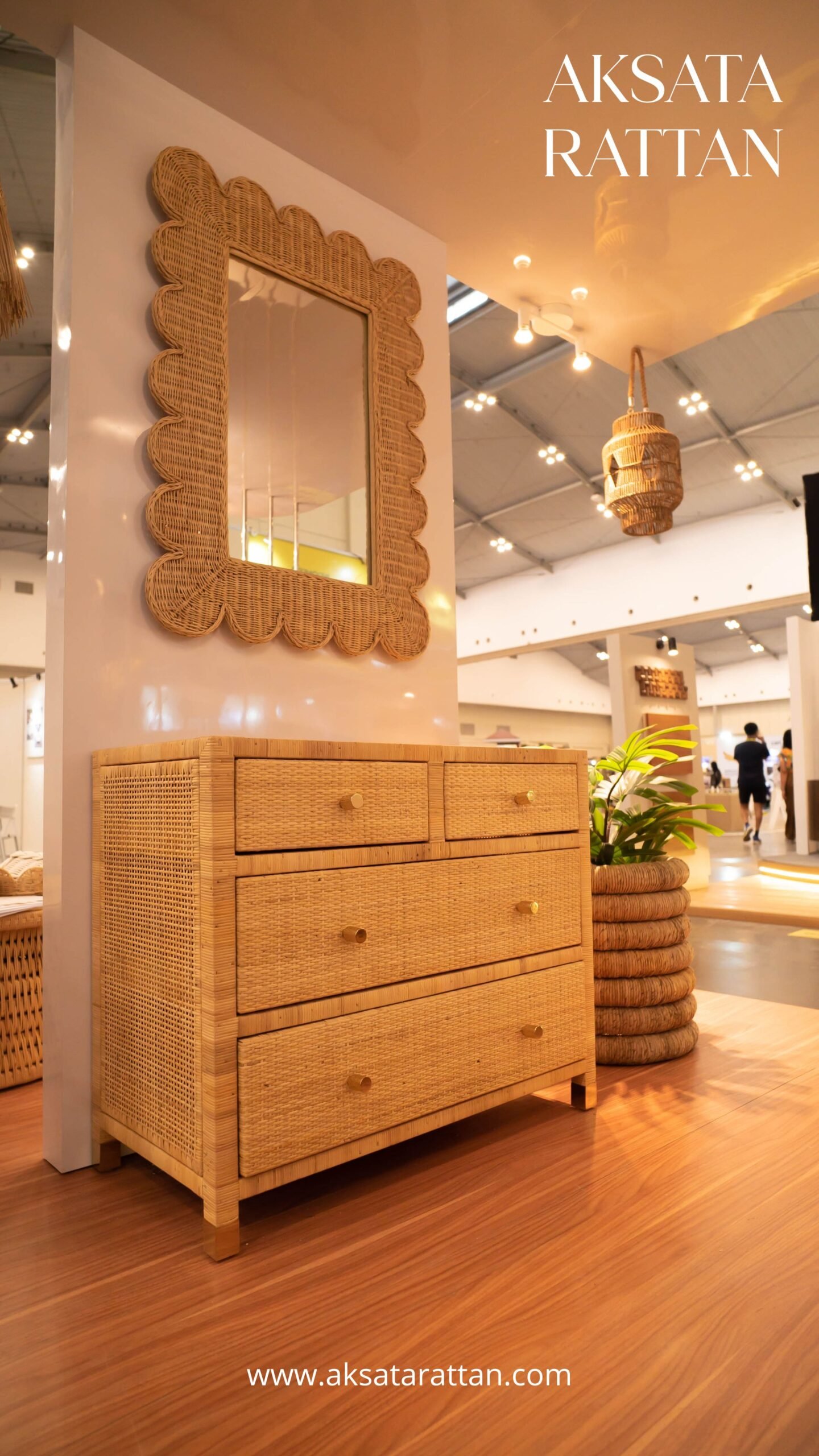1. The Heart of the Global Rattan Supply
Indonesia is the world’s largest source of natural rattan — accounting for over 80% of the global raw material supply.
From the dense forests of Kalimantan, Sulawesi, and Sumatra, rattan grows abundantly as a renewable vine that can be harvested without damaging trees. Unlike hardwood, rattan regenerates quickly, making it one of the most sustainable natural resources in the furniture industry.
This natural abundance gives Indonesia a unique advantage: a steady, eco-friendly supply chain rooted in biodiversity and local stewardship.
2. Sustainability from Forest to Furniture
Sustainability in Indonesia’s rattan industry begins long before a chair or table is made.
Harvesters are trained to cut mature canes while leaving younger ones to regrow, ensuring forest regeneration and ecosystem balance.
The raw material is then sent to processing centers in Cirebon and other craft hubs, where artisans and manufacturers transform it into handmade furniture using minimal energy and natural finishing methods.
Many factories, including CV Aksata Funricraft, now adopt eco-production systems — reusing waste materials, switching to water-based coatings, and reducing plastic packaging. The result is a product that is both beautiful and environmentally responsible.
3. Empowering Local Communities
Beyond the environmental benefits, the rattan industry sustains thousands of rural families across Indonesia.
In many villages, rattan weaving has been a tradition for generations. Through cooperatives and small workshops, these artisans earn stable incomes while preserving their cultural heritage.
By integrating fair-trade principles and community-based supply chains, Indonesian manufacturers ensure that sustainability also means social impact — not just ecological balance.
4. Certified and Globally Recognized
Indonesia’s government and private sector have invested heavily in ensuring legal and sustainable sourcing.
Programs like SVLK (Timber Legality Verification System) and international certifications such as FSC (Forest Stewardship Council) provide transparency from forest to export container.
This allows global buyers to trace each product’s origin, ensuring that every rattan chair, table, or lamp meets the highest ethical and environmental standards.
As a result, Indonesian rattan manufacturers are increasingly trusted by eco-conscious brands, hospitality projects, and international retailers seeking responsible partners.
5. Design Innovation Meets Eco-Luxury
Today’s global buyers want more than sustainability — they seek design and durability.
Indonesian rattan furniture makers have mastered this balance by blending traditional hand-weaving techniques with modern minimalist design.
From outdoor lounge chairs to bohemian pendant lamps, Indonesian rattan products stand out for their timeless look, light weight, and long lifespan — all made with low environmental impact.
Brands like Aksata Funricraft lead this movement, creating export-ready collections that combine natural aesthetics, comfort, and sustainable craftsmanship.
6. The Future: Green, Ethical, and Global
As the world shifts toward eco-friendly lifestyles, Indonesia’s rattan industry stands at the forefront of sustainable manufacturing and ethical trade.
With continuous innovation, design excellence, and environmental responsibility, Indonesia isn’t just the world’s largest rattan supplier — it’s shaping the future of green furniture production.
For global buyers seeking products that tell a story of nature, culture, and sustainability, Indonesian rattan remains the most authentic and responsible choice.





